Стихи - [61]
BRIDGET. Do you see anything?
MICHAEL. I see an old woman coming up the path.
BRIDGET. Who is it, I wonder. It must be the strange woman Patrick saw awhile ago.
MICHAEL. I don't think it's one of the neighbours anyway, but she has her cloak over her face.
BRIDGET. It might be some poor woman heard we were making ready for the wedding and came to look for her share.
PETER. I may as well put the money out of sight. There is no use leaving it out for every stranger to look at.
[He goes over to a large box in the corner, opens it, and puts the bag in and fumbles at the lock.]
MICHAEL. There she is, father! [An Old Woman passes the window slowly; she looks at MICHAEL as she passes.] I'd sooner a stranger not to come to the house the night before my wedding.
BRIDGET. Open the door, Michael; don't keep the poor woman waiting.
[The OLD WOMAN comes in. MICHAEL stands aside to make way for her.]
OLD WOMAN. God save all here!
PETER. God save you kindly!
OLD WOMAN. You have good shelter here.
PETER. You are welcome to whatever shelter we have.
BRIDGET. Sit down there by the fire and welcome.
OLD WOMAN [warming her hands]. There is a hard wind outside.
[MICHAEL watches her curiously from the door. PETER comes over to the table.]
PETER. Have you travelled far to-day?
OLD WOMAN. I have travelled far, very far; there are few have travelled so far as myself, and there's many a one that doesn't make me welcome. There was one that had strong sons I thought were friends of mine, but they were shearing their sheep, and they wouldn't listen to me.
PETER. It's a pity indeed for any person to have no place of their own.
OLD WOMAN. That's true for you indeed, and it's long I'm on the roads since I first went wandering.
BRIDGET. It is a wonder you are not worn out with so much wandering.
OLD WOMAN. Sometimes my feet are tired and my hands are quiet, but there is no quiet in my heart. When the people see me quiet, they think old age has come on me and that all the stir has gone out of me. But when the trouble is on me I must be talking to my friends.
BRIDGET. What was it put you wandering?
OLD WOMAN. Too many strangers in the house.
BRIDGET. Indeed you look as if you'd had your share of trouble.
OLD WOMAN. I have had trouble indeed.
BRIDGET. What was it put the trouble on you?
OLD WOMAN. My land that was taken from me.
PETER. Was it much land they took from you?
OLD WOMAN. My four beautiful green fields.
PETER [aside to BRIDGET]. Do you think could she be the widow Casey that was put out of her holding at Kilglass awhile ago?
BRIDGET. She is not. I saw the widow Casey one time at the market in Ballina, a stout fresh woman.
PETER [to OLD WOMAN]. Did you hear a noise of cheering, and you coming up the hill?
OLD WOMAN. I thought I heard the noise I used to hear when my friends came to visit me. [She begins singing half to herself.]
I will go cry with the woman,
For yellow-haired Donough is dead,
With a hempen rope for a neckcloth,
And a white cloth on his head,-
MICHAEL [coming from the door]. What is that you are singing, ma'am?
OLD WOMAN. Singing I am about a man I knew one time, yellow-haired Donough, that was hanged in Galway. [She goes on singing, much louder.]
I am come to cry with you, woman,
My hair is unwound and unbound;
I remember him ploughing his field,
Turning up the red side of the ground,
And building his barn on the hill With the good mortared stone; O! we'd have pulled down the gallows Had it happened in Enniscrone!
MICHAEL. What was it brought him to his death?
OLD WOMAN. He died for love of me: many a man has died for love of me.
PETER [aside to BRIDGET]. Her trouble has put her wits astray.
MICHAEL. Is it long since that song was made? Is it long since he got his death?
OLD WOMAN. Not long, not long. But there were others that died for love of me a long time ago.
MICHAEL. Were they neighbours of your own, ma'am?
OLD WOMAN. Come here beside me and I'll tell you about them. [MICHAEL sits down beside her at the hearth.] There was a red man of the O'Donnells from the north, and a man of the O'Sullivans from the south, and there was one Brian that lost his life at Clontarf by the sea, and there were a great many in the west, some that died hundreds of years ago, and there are some that will die to-morrow.
MICHAEL. Is it in the west that men will die to-morrow?
OLD WOMAN. Come nearer, nearer to me.
BRIDGET. Is she right, do you think? Or is she a woman from beyond the world?
PETER. She doesn't know well what she's talking about, with the want and the trouble she has gone through.
BRIDGET. The poor thing, we should treat her well.
PETER. Give her a drink of milk and a bit of the oaten cake.
BRIDGET. Maybe we should give her something along with that, to bring her on her way. A few pence, or a shilling itself, and we with so much money in the house.
PETER. Indeed I'd not begrudge it to her if we had it to spare, but if we go running through what we have, we'll soon have to break the hundred pounds, and that would be a pity.
BRIDGET. Shame on you, Peter. Give her the shilling, and your blessing with it, or our own luck will go from us.

В книге рассказывается история главного героя, который сталкивается с различными проблемами и препятствиями на протяжении всего своего путешествия. По пути он встречает множество второстепенных персонажей, которые играют важные роли в истории. Благодаря опыту главного героя книга исследует такие темы, как любовь, потеря, надежда и стойкость. По мере того, как главный герой преодолевает свои трудности, он усваивает ценные уроки жизни и растет как личность.
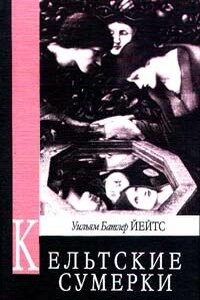
Уильям Батлер Йейтс (1865–1939) — классик ирландской и английской литературы ХХ века. Впервые выходящий на русском языке том прозы "Кельтские сумерки" включает в себя самое значительное, написанное выдающимся писателем. Издание снабжено подробным культурологическим комментарием и фундаментальной статьей Вадима Михайлина, исследователя современной английской литературы, переводчика и комментатора четырехтомного "Александрийского квартета" Лоренса Даррелла (ИНАПРЕСС 1996 — 97). "Кельтские сумерки" не только собрание увлекательной прозы, но и путеводитель по ирландской истории и мифологии, которые вдохновляли У.
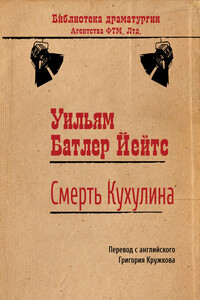
Пьеса повествует о смерти одного из главных героев ирландского эпоса. Сюжет подан, как представление внутри представления. Действие, разворачивающееся в эпоху героев, оказывается обрамлено двумя сценами из современности: стариком, выходящим на сцену в самом начале и дающим наставления по работе со зрительным залом, и уличной труппой из двух музыкантов и певицы, которая воспевает героев ирландского прошлого и сравнивает их с людьми этого, дряхлого века. Пьеса, завершающая цикл посвящённый Кухулину, пронизана тоской по мифологическому прошлому, жившему по другим законам, но бывшему прекрасным не в пример настоящему.
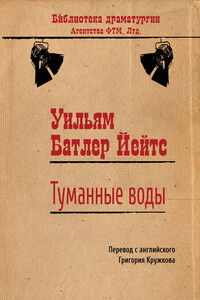
Эта пьеса погружает нас в атмосферу ирландской мистики. Капитан пиратского корабля Форгэл обладает волшебной арфой, способной погружать людей в грезы и заставлять видеть мир по-другому. Матросы довольны своим капитаном до тех пор, пока всё происходит в соответствии с обычными пиратскими чаяниями – грабёж, женщины и тому подобное. Но Форгэл преследует другие цели. Он хочет найти вечную, высшую, мистическую любовь, которой он не видел на земле. Этот центральный образ, не то одержимого, не то гения, возвышающегося над людьми, пугающего их, но ведущего за собой – оставляет широкое пространство для толкования и заставляет переосмыслить некоторые вещи.
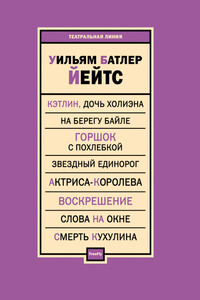
Уильям Батлер Йейтс (1865–1939) – великий поэт, прозаик и драматург, лауреат Нобелевской премии, отец английского модернизма и его оппонент – называл свое творчество «трагическим», видя его основой «конфликт» и «войну противоположностей», «водоворот горечи» или «жизнь». Пьесы Йейтса зачастую напоминают драмы Блока и Гумилева. Но для русских символистов миф и история были, скорее, материалом для переосмысления и художественной игры, а для Йейтса – вечно живым источником изначального жизненного трагизма.
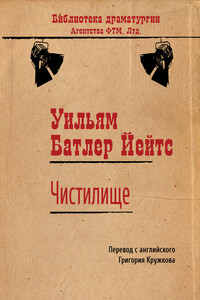
Старик и юноша останавливаются у разрушенного дома. Выясняется, что это отец и сын, а дом когда-то принадлежал матери старика, которая происходила из добропорядочной семьи. Она умерла при родах, а муж её, негодяй и пьяница, был убит, причём убит своим сыном, предстающим перед нами уже стариком. Его мучают воспоминания, образ матери возникает в доме. Всем этим он делится с юношей и поначалу не замечает, как тот пытается убежать с их деньгами. Но между ними начинается драка и Старик убивает своего сына тем же ножом, которым некогда убил и своего отца, завершая некий круг мучающих его воспоминаний и пресекая в сыне то, что было страшного в его отце.